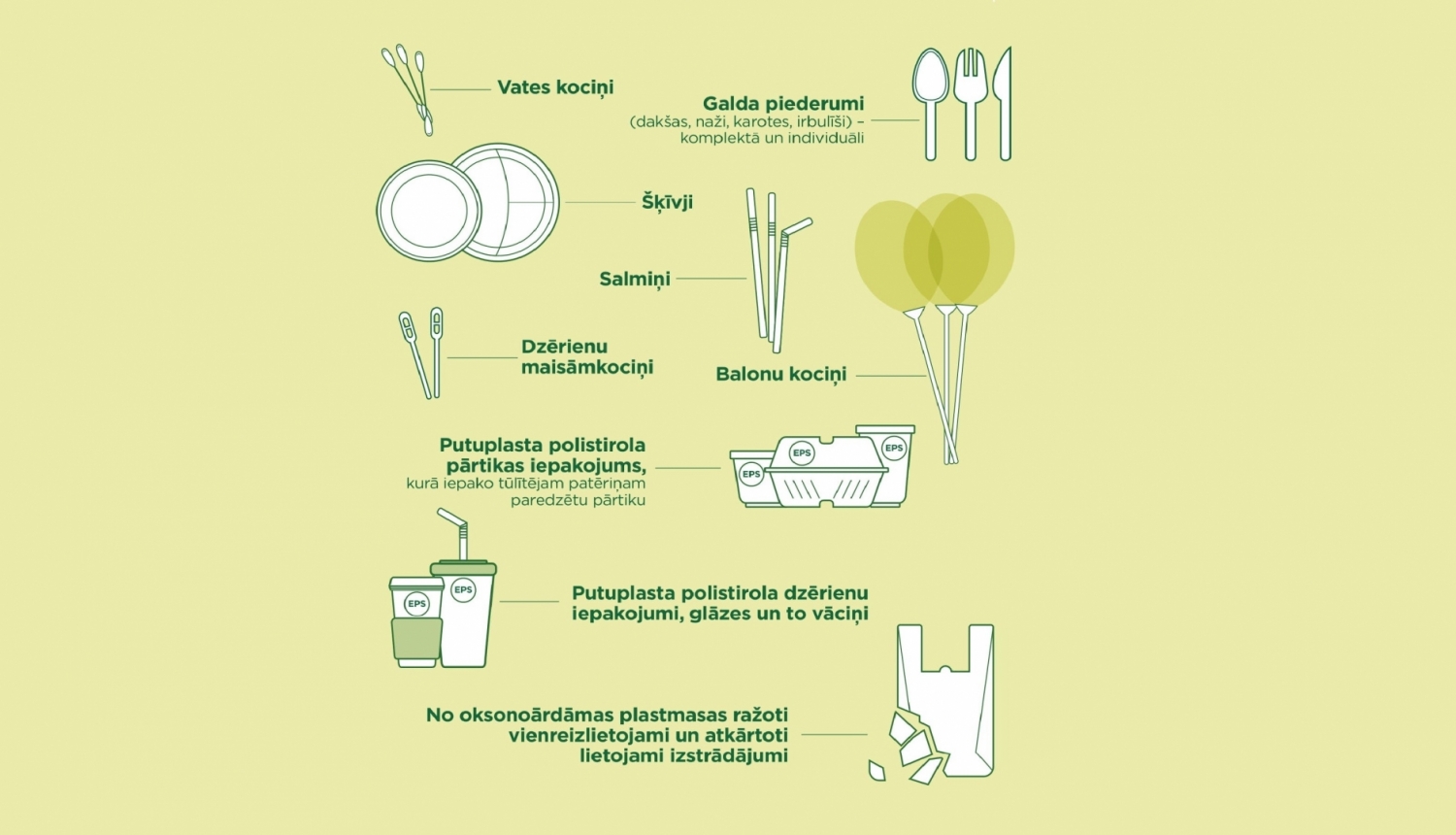Riga, March 24 - Today, March 24, the Cabinet approved the draft Law on Plastic Products drafted by the Ministry of Environmental Protection and Regional Development, which aims to reduce the impact of plastic products on the environment and human health, as well as to promote the circular economy. The regulatory framework is intended to enter into force. g. 3 July.
Minister Artūrs Toms Plešs: “One of the most subversive global challenges is marine pollution with plastics, 70% of which consists directly of disposable plastic objects and gears. This is why around 100 000 marine animals die every year. K. whales, seals, turtles, dolphins. . By implementing the requirements of the new law, the volume of plastic waste will decrease by around 40 tonnes per year in Latvia, replacing them with more sustainable solutions that are already gradually being offered to consumers."
The new regulation prohibits the marketing of a number of products containing disposable plastic products, offering them free of charge to the consumer, establishing a mandatory minimum proportion of recycled material in consumer polyethylene terephthalate packaging and other packagings. The regulation also lays down requirements for the design of the packaging of drinks with caps and corks and the obligation to label a disposable plastic product s. The draft law also includes the obligation to create the manufacturer's extended liability systems for new sites – wet napkins, balloons, tobacco products with filters and tobacco filters, as well as gears containing plastics – by determining the manufacturer's responsibility for managing the waste generated from this product. Requirement to provide a separate package of drinks is also imposed.
The draft law applies to those disposable plastic products that already have more natural-friendly alternatives, such as cotton trees, plastic cutlery and plates, drink straws, bagel trees, balloon trees, foam polystyrene food and beverage packaging, as well as products made from ocsonar plastic. However, glasses are not yet banned, but measures must be taken to reduce their consumption. The obligation to reduce consumption and to create producer responsibility systems also applies to fishing gears containing plastics.
With this draft law, Latvia takes over the requirements of the European Union directive to reduce the consumption of certain plastic products and fishing gears and their impact on the environment, as well as the requirement for the development and development of waste management of such products. This approach is one of the measures for the transition to a circular economic model I. Latvia must take over the provisions of the Directive by 2 July of this year.
The draft law does not cover products and parts of products intended for export outside the EU common market which are necessary for the manufacture of products intended for export.
More information on the draft law and answers to the most frequently asked questions - https://www.varam.gov.lv/lv/plastmasas-and-saturosie-isstradments
Information prepared by:
Public Relations Department
Ministry for Environmental Protection and Regional Development
20200305; 67026533,
e-mail: prese@varam.gov.lv
www.varam.gov.lv
